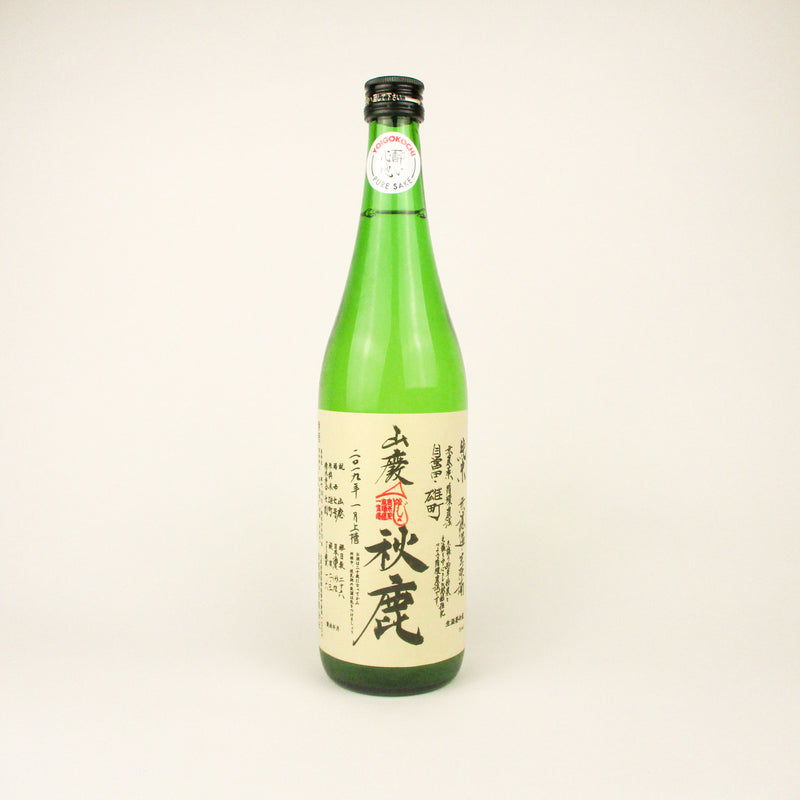Akishika Omachi

Please note, this product is not available for shipping. It is available for free pick-up or delivery in Portland, OR. Akishika Brewery is gaining a cult fol...
Please note, this product is not available for shipping. It is available for free pick-up or delivery in Portland, OR.
Akishika Brewery is gaining a cult following, and for good reason. They produce highly structured, intense, wild, expressive, dry sakes that follow their own house style, rather than dictates of mainstream brewing traditions. That being said, they don't throw out traditions. Omachi is the rice in this sake. It is considered the oldest heirloom sake rice. It's hard to grow and hard to brew with. But it yields fantastically expressive results, such as this Akishika Omachi.
Akishika's Omachi is citrusy, well rounded in body with a generous acidity, and starts and finishes dry on the palate.
Akishika Brewery is located in Osaka prefecture. They grow rice themselves, as well as contract with local farmers. Akishika obtained certified organic-status in 2011, although they and their farmers had been running things as such for much longer. All of their rice used is Yamada Nishiki or Omachi. Brewer Hiroaki Oku says, "I am a farmer who makes sake." It is his aim to show the terroir of the rice that he grows in the sake that he brews.
Of unique note for Akishika, they are of a small cadre of aging-oriented sake brewing. Although the mainstream of sake is geared towards fresh and fast consumption of brews, following short aging, Akishika follows their own path, and stores the majority of their releases for years before release. They release sake from storage sporadically, only once it is deemed "ready". Given this, Akishika Brewery's sakes are ones that we would wholeheartedly endorse cellaring. We really can't say for how long one should hold onto these, but the structure and complexity of Akishika's brews speak to this. Also consider opening a bottle, having a glass and then putting the open bottle away for 24 hours (or 6 months, why not?). There's really something fantastic about the way oxygen affects these sakes, and like other bold sakes (such as Yuho), our experimentation is continuing to pay off in tasty surprises.